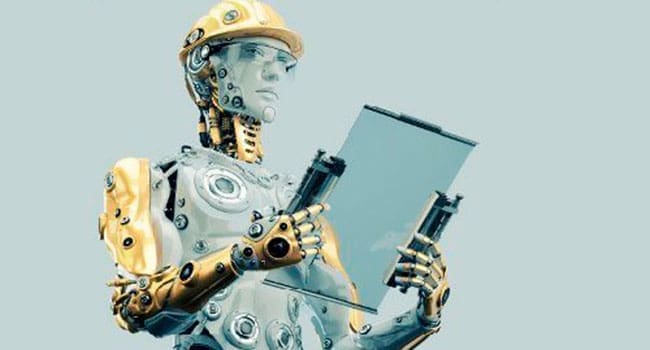We need to start preparing for a jobless future, in which only a small number of people use machines to manage all work.
Machines are taking over jobs at an accelerating pace. Society is beginning to feel the impact of massive automation.
Most troubling? The kinds of jobs that machines will take over: all of them.
Most people are familiar with the huge impact that industrial robots have had on manufacturing. Robot arms with enormous strength, dexterity and co-ordinated activity are replacing almost every job in typical manufacturing plants around the world.
The common assumption is that all these jobs are repetitious and so lend themselves to automation. But recent advancements in artificial intelligence (AI) are changing what’s possible, pushing the automation boundaries deeper into human worker territory.
In manufacturing, it seems only a matter of time before we achieve complete automation, but all other fields are also being affected.
An argument might be made that jobs requiring on-the-fly decisions and human-level dexterity won’t be robot jobs for decades to come – that these tasks can only be successfully performed by humans. But recent advances in AI indicate that this distinction might not hold for long.
Consider the artificial intelligence required to drive a car. A decade ago, self-driving cars seemed like science fiction. But the technology works now, and within the next decade or two this capability will be commonplace.
Automated-driving AI must recognize objects in real-time, hold vast knowledge of maps, maintain all the rules of the road and apply them perfectly while maintaining knowledge for an endless number of edge cases.
These same AI capabilities apply to all other fields, including professional ones. Professional practices such as medicine, law, teaching, engineering, accounting, etc., are being affected by automation.
Jobs in the service sector have long been thought safe from automation because of the robot communication barrier. You can’t easily talk to a robot – yet. But automated language processing is being propelled ahead rapidly by the same innovations driving the rest of the AI field, making human-level interactions more realistic every day.
Speech generation and natural language understanding are core skills a robot will need to do the job of a human. These systems are emerging in generally-available commercial products like Siri, Alexa and Google Assistant. These systems are advancing in both intelligence and domain knowledge. The technology is in such demand that developers worldwide are jumping in and working hard to compete in a newly emerging intelligence market. In the next few years, AI interfaces will replace or augment most user interface systems.
Even the creative fields are being impacted in the push for automation. Computer compositions won’t likely replace human creations any time soon. But tools now available significantly improve the ability of small creative teams to increase their productive output. Vast movie sets are being replaced by computer-generated backgrounds, props and even people. Mixing and mastering is all software driven. The writing field is also being affected with the development of advanced AI tools that convert raw data (such as sporting event data) into fully formed descriptions, and turning basic notes into full documents.
The next decade will see unprecedented changes in the workforce. Existing jobs will vanish. New jobs will be scarce and won’t at all resemble the jobs they replace.
Any work that remains for humans will require specialized skills, largely involving the use of intelligent machines to manage people and automated processes. And, unfortunately, only a small number of people will be required to do that.
The Luddites were correct: machines will replace people. They were just two centuries too early.
Bruce Matichuk is an AI consultant working in Edmonton on Health Gauge, an AI-based hypertension management system. Bruce is also an executive in residence at GO Productivity.
Bruce is a Troy Media Thought Leader. Why aren’t you?
The views, opinions and positions expressed by columnists and contributors are the author’s alone. They do not inherently or expressly reflect the views, opinions and/or positions of our publication.


